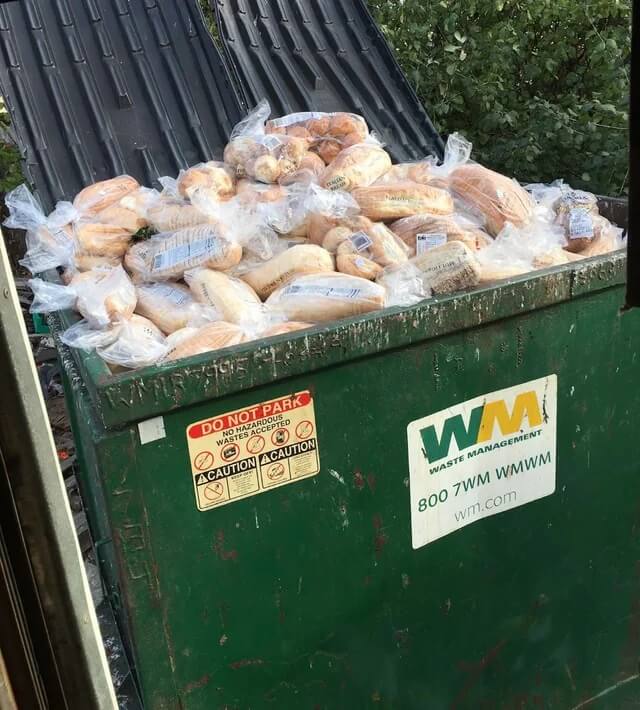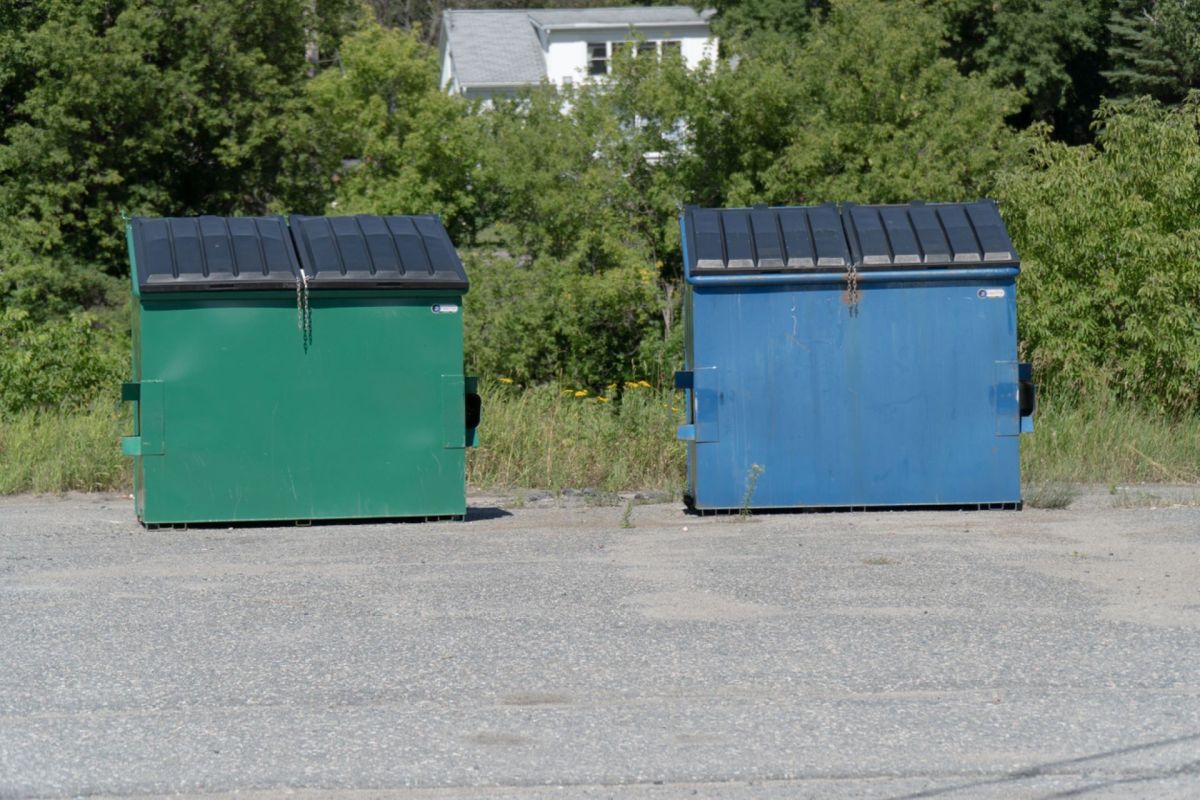A delivery driver posted a photo of a bakery's dumpster overflowing with loaves of bread, angering Redditors who bemoaned the waste of food.
"The bread was made without preservatives and went stale after only a few days," the poster wrote. "This picture was taken around Christmas when my boss would order a f*** ton of extra bread to ensure the stores didn't run out. More often than not, a huge portion of the bread wouldn't sell."

They continued: "I did take a trunk full of bread to a soup kitchen a few times a week, but around the holidays even taking a trunk full barely made a dent in the waste. It's a f****** tragedy and no one should be starving anywhere when this kind of waste is okay."
Commenters agreed.
"I heard that about 30% of all food produced in the world goes to waste," one wrote. It's true — the food that is produced and thrown away each year could feed 2 billion people, more than twice the number of undernourished people worldwide.
Meanwhile, another commenter said, "I'd get fired for taking this home and donating it to the food bank."
🗣️ What's your biggest motivation in trying to reduce your personal food waste?
🔘 Saving money 💰
🔘 Helping the planet 🌎
🔘 Not being a wasteful person 😇
🔘 I don't think about reducing food waste 🤷
🗳️ Click your choice to see results and speak your mind
Bread and bakery are the highest-producing categories of food waste, with 30% of bread products going to waste in the U.S. and up to 50% in certain European countries.
The issue is complex. Action must be taken swiftly if food is going to be redistributed within a safe time frame for consumption, but it is possible.
For example, one food bank rescued nearly 60,000 meals after a storm knocked out several stores' refrigerators. Similarly, Trader Joe's has been known to give away frozen food immediately after losing power.
There are several ways to combat food waste — most of which begin in your own backyard (literally). Shopping smarter and consuming as much of your food as possible is key. For scraps you can't recycle, you can donate them to your local farm animal rescue as a treat.
If you can't eat or donate it within a food-safety window, use the compost to start a garden — and save money by growing your own food.
Other commenters were optimistic. "When I worked as a kitchen porter, we would give our end-of-day bread to local homeless shelters and wildlife reserves," one commented. "Most towns in our country do the same."
Join our free newsletter for cool news and actionable info that makes it easy to help yourself while helping the planet.









